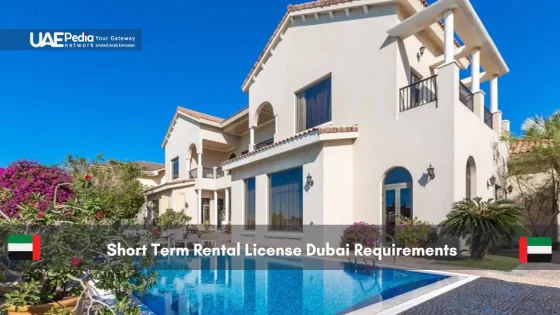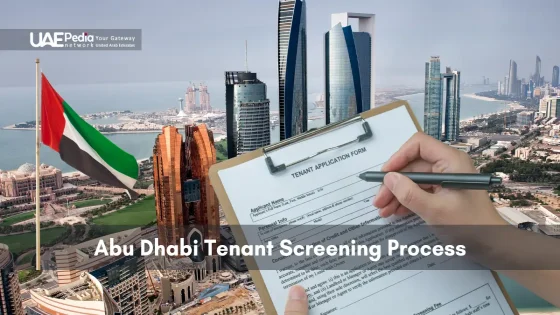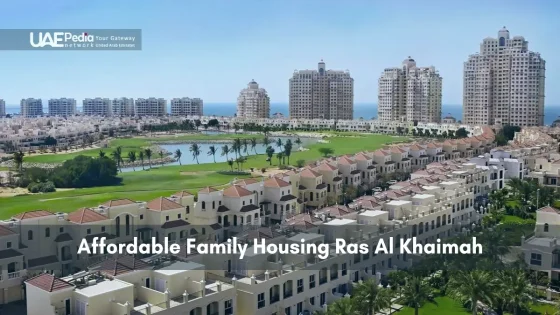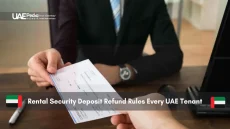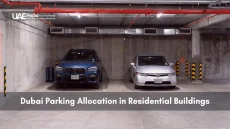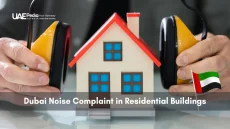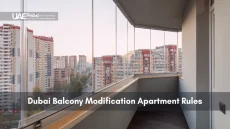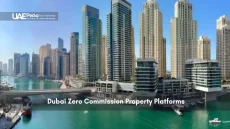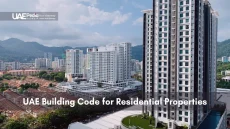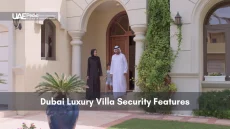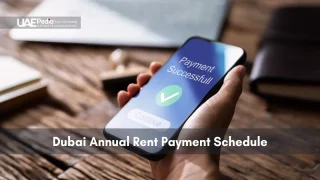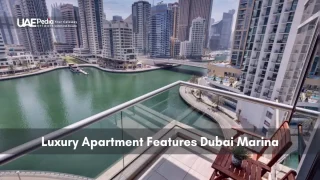What if unlocking Dubai’s thriving tourism market required just one key document? With 16.7 million international visitors in 2023 alone, the city’s demand for flexible stays transforms property ownership into a strategic opportunity. Whether you own a downtown apartment or a beachfront villa, understanding local rules lets you tap into this booming sector responsibly.
Holiday homes here operate under clear guidelines set by the DTCM—Dubai’s tourism authority. Compliance isn’t optional; it’s your ticket to legally hosting guests while avoiding fines. This framework ensures quality standards, protects your investment, and keeps the market competitive for everyone.
We’ll walk you through the essentials: paperwork checklists, fee structures like the Tourism Dirham, and property readiness tips. You’ll also discover how streamlined registration creates new income streams in a city where tourism thrives year-round.
- DTCM approval ensures your space meets safety and comfort benchmarks
- Transparent fees balance affordability with long-term profitability
- Proper licensing builds guest trust and maximizes occupancy rates
Overview of the Short Term Rental Landscape in Dubai
Why let your empty apartment collect dust when it could be hosting adventurers from Paris to Perth? Dubai’s hospitality scene has shifted dramatically—gone are the days of rigid annual leases. Today, travelers crave flexible stays that match their dynamic itineraries, and property owners are answering the call.
Understanding Holiday Home Rentals
Over the past decade, furnished properties have become the go-to for visitors seeking local experiences. Unlike traditional rentals, these spaces blend hotel-like amenities with neighborhood charm. Downtown studios and Palm Jumeirah villas now average AED 797 per night during peak seasons, with occupancy rates soaring above 80%.
Benefits for Property Owners
Owners enjoy two major perks: earnings that surge during events like Dubai Shopping Festival and the freedom to block personal use dates. One JBR high-rise owner reported tripling their annual income by hosting international guests. But success isn’t just about pricing—it’s built on crisp linens, swift Wi-Fi, and those sunset views that earn 5-star reviews.
Regulatory fees, including the Tourism Dirham (AED 10-20 per night), ensure market stability without eating into profits. As one investor put it: “Compliance isn’t a cost—it’s your reputation’s foundation.” With demand growing faster than Burj Khalifa’s elevators, this sector welcomes both Emirati nationals and global entrepreneurs ready to thrive.
Obtaining Your Short Term Rental License Dubai: Eligibility and Process
Imagine your property becoming the next hotspot for travelers craving authentic Dubai experiences—all it takes is a few smart steps to get official approval. The DTCM portal streamlines everything, turning what might feel like paperwork into a straightforward journey.
Step-by-Step Registration with DTCM
First, create your account on the DTCM Holiday Homes platform—think of it as your digital concierge. You’ll need three essentials: passport/Emirates ID, property title deed, and a floor plan. Upload these, then select your unit size category. Fees start at AED 1,000 for registration, plus AED 10-20 nightly Tourism Dirham charges.
Key rule? Your space must operate as a full-unit listing—no shared living with owners. This ensures guests enjoy privacy while you maintain professionalism. One investor shared: “The portal feels like booking a flight—select options, upload docs, done in 15 minutes.”
Permits for Multiple Properties
Got more than one unit? Manage up to eight properties under a single account. Beyond that, you’ll need a trade license—Dubai’s way of ensuring large-scale operators meet commercial standards. Fees scale reasonably: studios cost less than 4-bed villas, letting you balance earnings with expenses.
Remember to log guest details within three hours of arrival through the DTCM system. It’s not just compliance—it’s smart management. As one host noted: “Quick check-ins mean happier travelers and fewer midnight support calls.”
Essential Documentation for Holiday Home Registration
Think of your paperwork as golden keys to Dubai’s hospitality scene—they unlock your property’s earning potential while keeping everything above board. Let’s break down what you’ll need to gather before hitting “submit” on your application.
Title Deed and Identification Requirements
First up: proof you own the space. A clear copy of your title deed is non-negotiable—like showing your ID at a five-star hotel check-in. If you’re renting? You’ll need the owner’s written consent. Pair this with your passport or Emirates ID, ensuring both are valid and legible. One Marina resident shared: “Scanned docs took 10 minutes—the system flagged blurry edges, so crisp copies matter!”
Utility Bills and No Objection Certificates (NOC)
Recent DEWA bills act as your property’s heartbeat monitor—they confirm active services and address accuracy. Tenants subletting must present an NOC using DTCM’s template, signed by the landlord. Pro tip: Get this early to avoid delays. As a management pro in JLT advised: “An NOC isn’t just paper—it’s trust in writing.”
Formatting rules are simple: PDFs only, Arabic/English translations if needed, and dates within 60 days. Miss a step? The portal flags it instantly. By organizing these upfront, you’ll breeze through approvals while meeting the city’s quality benchmarks for guest-ready spaces.
Regulations and Compliance: Quality, Safety, and Operational Standards
Picture this: your holiday home’s rulebook isn’t red tape—it’s the blueprint for becoming a guest favorite. Dubai’s DTCM team acts like friendly quality control ninjas, ensuring every space meets their “five-star ready” checklist. Their secret sauce? Routine inspections that verify everything from smoke detectors to sofa comfort.
Property Standards and Safety Inspections
Expect surprise visits checking fire extinguisher dates, balcony rail heights, and even Wi-Fi speeds. One Jumeirah host laughed: “They spotted a loose socket cover I’d missed—saved me from a bad review!” Rules cap guests per room (max 4 in 1-bed units) to prevent overcrowding. Weekly deep cleans and AC servicing aren’t just advised—they’re required.
The Tourism Dirham fee (AED 10-20 nightly) does double duty. It funds city promotions that fill your calendar while covering guest insurance. As one investor noted: “Guests see this charge and know they’re booking legit—it’s trust built into the bill.”
Balancing costs? Registration fees start at AED 1,000—less than two peak-season nights in a downtown studio. Smart owners reinvest this into amenities like smart locks or premium linens. One Palm Jumeirah villa upgraded to noise-reducing windows, earning “quiet oasis” tags in reviews.
Three compliance must-dos:
- Schedule annual electrical/gas checks—expired certs mean instant listing suspension
- Display emergency contacts prominently (DTCM provides templates)
- Track Tourism Dirham payments through the portal—auto-reminders prevent slip-ups
Staying sharp with these standards isn’t just about avoiding fines. It’s how you become the go-to host travelers recommend like their favorite shawarma spot.
Navigating Fees, Taxes, and Additional Costs
What separates savvy investors from those leaving money on Dubai’s sunbaked sidewalks? A crystal-clear grasp of costs—from upfront permits to nightly tourism fees. Let’s map out every dirham you’ll encounter.
Breaking Down Registration Expenses
The dubai department overseeing hospitality charges AED 1,000 for initial registration. Permit fees then scale with your space:
- Studio/1-bed: AED 1,500 annually
- 2-3 beds: AED 3,000
- 4+ bedrooms: AED 4,500
One Business Bay owner shared: “Our 3-bed paid AED 3k—recouped in 6 peak nights. Worth every fils.” Payments happen through the DTCM portal, with monthly reminders to prevent late penalties.
Tourism Dirham Mechanics
This nightly fee acts like a city-wide hospitality tax. Properties pay AED 10-20 per room—not per guest. A 2-bed apartment hosting 4 travelers? That’s AED 15 total nightly, added to guest bills. These funds support infrastructure and marketing campaigns that keep your calendar full.
Smart cookie tip: Track seasonal demand. Winter months see 45% higher rates—time to offset fixed costs like insurance (AED 1,200/year) and maintenance (AED 2k/month average). Use apps like HostTools to auto-split DEWA bills between personal and guest usage.
“Budget for deep cleans between stays—AED 250 per visit keeps those 5-star reviews coming.”
Remember: AED 1,000 isn’t pocket change. But when a downtown studio earns AED 800/night, smart business owners see fees as stepping stones, not roadblocks. Now, who’s ready to crunch numbers?
Dubai-Wide Short-Term Rental Rules and Property Guidelines
Navigating the city’s hospitality landscape feels like following a well-marked highway—clear signs, predictable turns, and smooth exits when you know the route. The DTCM’s framework ensures every property type has its lane, preventing collisions between residential comfort and guest expectations.
Eligibility of Property Types
Not all spaces qualify for visitor stays. Gated community villas? Green light. Units facing Sheikh Zayed Road’s buzz? Red flag—noise rules apply. Hotel apartments operate under separate permits, while holiday homes thrive in quieter zones. Check this quick guide:
| Property Type | Eligibility | Annual Permit Fee (AED) |
|---|---|---|
| Villa (Gated Community) | Approved | 4,500 |
| Apartment (Main Road) | Restricted | N/A |
| Hotel Apartment | Commercial License Required | 15,000+ |
Owners leasing entire units avoid partial rental headaches—no splitting rooms allowed. Tenants? You’ll need the owner’s notarized permission alongside your permit. One Al Barsha host shared: “Our landlord’s NOC took three days—faster than Amazon Prime!”
Three compliance shortcuts for stress-free hosting:
- Review community regulations—some towers ban stays under 30 days
- Display your permit number in listings (guests check this!)
- Use DTCM’s checklist for annual safety renewals
Fees stay predictable: studios pay 35% less than 4-bed villas. Smart cookie tip? Factor these into your nightly rate—guests appreciate transparency, and you avoid last-minute scrambles. Now, who’s ready to match their space to the perfect traveler?
Effective Strategies for Holiday Home Management
Great hosts know magic happens when preparation meets smart systems. Let’s explore how to transform chaotic check-ins into five-star first impressions while keeping your sanity intact.
Digital Doorways: Streamlining Arrivals
Guests adore frictionless entries. Use the DTCM portal to pre-verify passport copies and send digital keys via apps like Hostify. One Downtown host shared: “Auto-check-in instructions cut my 3 AM calls by 90%!” Three golden rules:
- Confirm ID details 48 hours before arrival
- Share Wi-Fi codes and emergency contacts in-app
- Schedule inspections during turnover days
Your Behind-the-Scenes Dream Team
Top-tier management firms handle laundry lists you’d rather skip—think restocking toiletries or resolving AC emergencies at 2 AM.
“Our partners handle permit renewals and Tourism Dirham filings—I focus on choosing art that wows guests.”
Digital tools shine here too. Create a simple website showcasing your unit’s unique perks, synced with booking calendars. Cloud storage for documents (DEWA bills, NOCs) means instant access during surprise audits.
Balance is key. Use apps like HostTools to monitor cleanings remotely while trusting pros for hands-on tasks. One JBR superhost puts it best: “I’m the conductor—my team’s the orchestra making sweet music daily.”
How to Start and Scale Your Short-Term Rental Business in Dubai
Building a thriving hospitality venture here begins with treating your strategy like a blueprint—layered, precise, and adaptable. Seasoned operators know success isn’t luck; it’s matching guest desires with smart systems that grow alongside demand.
Market Research and Business Licensing
Start by analyzing neighborhood occupancy patterns. Downtown studios might rent faster, but Palm villas command higher nightly rates. One JBR operator discovered 63% of their bookings came from families—so they swapped minimalist decor for kid-friendly setups. Tools like AirDNA reveal seasonal trends, while local trade associations share permit updates.
Licensing forms your foundation. Pair your DTCM holiday home approval with a DED trade license if managing multiple units. Costs vary: AED 15,000+ covers commercial operations, while freelance permits suit smaller portfolios. As the founder of StayUAE advises: “Treat your first contract as a learning lab—negotiate flexible terms to test pricing and guest preferences.”
Secure your deed or owner consent early, then build a maintenance schedule that outshines competitors. A Desert Palm villa owner credits their 97% occupancy to biweekly pool checks and same-day linen replacements. Use apps like Breezeway to track repairs—guests notice when everything works like Burj Khalifa’s elevators.
Scaling? Forge partnerships with cleaning crews and key suppliers first. One three-property owner grew their network through community Facebook groups, slashing turnover costs by 40%. Remember: consistent quality turns first-time renters into repeat advocates—your true growth engine.
Final Thoughts on Maximizing Your Short-Term Rental Investment in Dubai
Transforming your property into a guest favorite isn’t magic—it’s method. By securing your title deed, mastering fee structures, and embracing digital tools, you’re not just hosting—you’re building a reputation. Dubai’s thriving tourism community craves spaces that blend local charm with hotel-grade reliability, and your attention to detail turns each night into a chance to impress.
Stay ahead by automating check-ins and tracking Tourism Dirham payments. Partner with local services for seamless turnovers—happy guests become repeat bookers. With occupancy rates soaring, your focus on safety standards and cultural authenticity keeps travelers returning.
Ready to scale? Explore our forward-thinking guide for dynamic pricing strategies that match demand peaks. Remember: every five-star review starts with crisp paperwork and ends with memories made on your balcony. Your next step? Open that DTCM portal—your calendar awaits its first fully booked month.
No – all holiday homes require a valid permit from Dubai’s Department of Tourism and Commerce Marketing (DTCM). Operating without one risks fines up to AED 50,000. Licensed properties gain visibility on platforms like Airbnb and Booking.com too!
Expect AED 1,050 for your initial DTCM permit, plus AED 500 per bedroom annually. A 3-bed villa? That’s AED 2,550 yearly. Add a 7% Tourism Dirham fee per guest night – but these costs often pay for themselves with higher rental rates.
Absolutely. Submit a No Objection Certificate (NOC) from your landlord or homeowners’ association. Some communities like DAMAC Hills or Jumeirah Beach Residence restrict rentals under 6 months – check your contract first!
DTCM inspectors verify fire extinguishers, first-aid kits, smoke detectors, and emergency exit maps. Furnishings must meet durability guidelines, and balconies require child-safe railings. We’ve seen cozy studios pass – just prioritize guest safety.
Yes! Firms like Frank Porter or One Perfect Stay handle check-ins, cleaning, and 24/7 support for 15-25% of rental income. Perfect if you’re abroad or prefer passive income. Just ensure they’re DTCM-approved to avoid compliance hiccups.
Most freehold zones like Downtown Dubai and Palm Jumeirah welcome holiday homes. However, some older Deira buildings or government-owned communities prohibit rentals under 12 months. Always verify with DTCM’s interactive zoning map first.
Once documents are ready, DTCM typically issues permits within 10 working days. Pro tip: Apply during off-peak months (May-August) to avoid delays. Then list your property – prime seasons like November-March book up fast!
